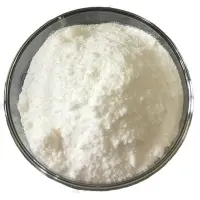-
Categories
-
Pharmaceutical Intermediates
-
Active Pharmaceutical Ingredients
-
Food Additives
- Industrial Coatings
- Agrochemicals
- Dyes and Pigments
- Surfactant
- Flavors and Fragrances
- Chemical Reagents
- Catalyst and Auxiliary
- Natural Products
- Inorganic Chemistry
-
Organic Chemistry
-
Biochemical Engineering
- Analytical Chemistry
-
Cosmetic Ingredient
- Water Treatment Chemical
-
Pharmaceutical Intermediates
Promotion
ECHEMI Mall
Wholesale
Weekly Price
Exhibition
News
-
Trade Service
Melatonin is a hormone that is produced by the pineal gland in the brain.
It is responsible for regulating sleep and wakefulness, and its levels in the body are influenced by a number of factors, including age, light exposure, and stress levels.
Melatonin is also used as a dietary supplement and has been shown to have a number of potential health benefits, including improved sleep quality, reduced anxiety, and improved immune function.
In recent years, the use of melatonin as a dietary supplement has increased significantly, and it is now one of the most popular supplements on the market.
This has led to a growing demand for high-quality melatonin products, and as a result, the chemical industry has responded by developing new methods for producing melatonin in larger quantities and at a lower cost.
One of the most important developments in the production of melatonin has been the introduction of microwave-assisted synthesis.
This method uses microwave energy to accelerate the reaction between the precursor molecules that are used to produce melatonin, resulting in a faster and more efficient process.
This has allowed for a significant increase in the yield of melatonin, making it easier and more cost-effective to produce high-quality products.
Another important development has been the use of biotechnology to produce melatonin.
This involves the use of genetically modified organisms, such as bacteria or yeast, to produce melatonin in large quantities.
This method has a number of advantages over traditional chemical synthesis methods, as it is more environmentally friendly and does not involve the use of toxic chemicals.
Overall, the production of melatonin has come a long way in recent years, and the chemical industry continues to develop new and more efficient methods for producing this important hormone.
As demand for melatonin as a dietary supplement continues to grow, it is likely that we will see even more innovations in this area in the years to come.







